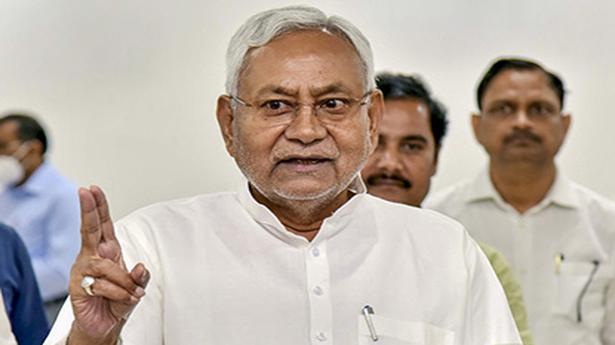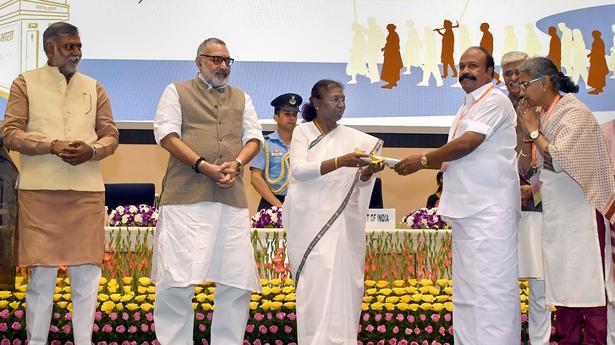The scriptwriters follow the strategy of getting people to have fun, while slowly internalising their message, which perhaps makes the film different from quite a few other films on the subject.
The scriptwriters follow the strategy of getting people to have fun, while slowly internalising their message, which perhaps makes the film different from quite a few other films on the subject.
Starring: Darshana Rajendran, Basil Joseph
Direction: Vipin Das
Till a few years back, the slap was the most common weapon of choice for good-natured men in Malayalam cinema to put women who cross the ‘limits’ in their place. Most often, the movies used to portray the men who slap women as doing the right thing. Times have changed, and the slaps have almost disappeared from our cinema. In Vipin Das’s Jaya Jaya Jaya Jaya Hey, the slaps make an emphatic return, a total of twenty one of them within six months, as Jayabharati (Darshana Rajendran) tells her husband Rajesh (Basil Joseph)’s relative. The only difference being, the one who slaps pays a price, and does not get treated like a hero.
But, all this might make it sound like a rather grim, realistic film on domestic violence and patriarchy. Jaya Jaya…‘, filled with some rip-roaring humour, is anything but that. The scriptwriters follow the strategy of getting people to have fun, while slowly internalising their message, which perhaps makes the film different from quite a few other films on the subject.
No right to choose
Jaya’s travails do not start at her husband’s home, rather her life is a long continuum of being constantly denied her right to choose, with every decision taken by the men in the household. Even her choice of degree course is denied to her through the intervention of a “well-meaning” uncle. These will perhaps be the most relatable parts of the film to many, considering the number of well-meaning relatives that are around, ready to dish out advice for “your own good”.
Rajesh, her poultry-businessman husband, does not come with this veneer of friendliness. In his house, named ‘Raj Bhavan’, only his writ runs, with even his mother and sister resigned to cooking and eating his only favourite food- Idiyappam – daily. Jaya gets an inkling of the violence that awaits her the minute she steps into this home, in the broken chairs and the glass table. Added to the complete loss of freedom, even to pursue her studies, the violence takes her almost to the breaking point.
Drastic shift
The movie takes a drastic shift in tone when Jaya decides to take things into her hand. From then on, it is a constant shift between over-the-top humour and realistic portrayal of a violent marriage. Some of the bits, including Jaya’s fight back, might seem exaggerated. But, the makers are clearly not presenting this as a solution to domestic violence, but as a cathartic exercise for the many who are forced to silently endure violence in their daily lives and as a means to prick at those who see such violence as their right. It only slacks a bit in places, especially during a fight with a running commentary.
Basil Joseph makes that easy shift from his usual likeable characters to someone who evokes only revulsion, while Darshana yet again delivers a controlled performance in a character that could have easily gone out of hand, given the stuff that she is required to do. Not to forget, the entire cast of supporting characters. Jaya Jaya Jaya Jaya Hey uses effectively an over-the-top style to say all the things that it wants to say, and it does where it is intended to.






